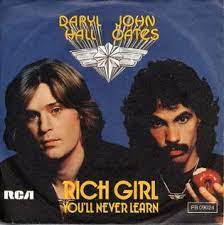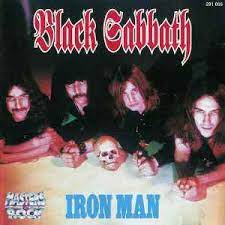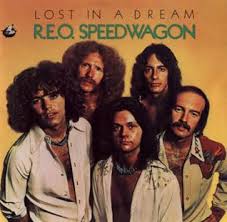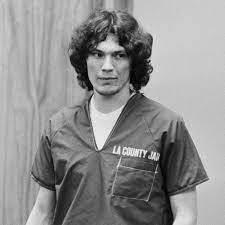The Musical Preferences of Serial Killers

As a thriller writer, I know how important it is to delve into the minds of my characters and understand their motives and thought processes. That's why I was intrigued when I stumbled upon an article listing the favorite songs of some of the most notorious serial killers in history. It got me thinking about the significance of music in their lives and what it reveals about their personalities.
As a writer, both professionally and personally, I wonder about every detail I share with the world, whether it's through social media or the pages of my novels. The thought of how my words could be interpreted or utilized once they leave my hands is a constant lingering concern. Perhaps this is heightened by the fact that I often slip into the psyche of a serial killer in my thriller novels. I can't help but wonder about the ramifications for the musicians whose work has been taken to heart by such individuals. Are you ready to dive in and see what I found?
***I would love your input for a song to go with my serial killer, HIM (see the last paragraph for more info).
David Berkowitz
David Berkowitz, also recognized by the moniker Son of Sam and the .44 Caliber Killer, was a military veteran who confessed to the murders of eight people across various New York boroughs between 1975 and 1977. He professed that he was acting under the command of a demonic entity, which he believed was embodied in his neighbor's dog, "Sam". Interestingly, Berkowitz was an avid admirer of the musical duo Hall & Oates and their chart-topping hit "Rich Girl" in particular. He alleges that this song stirred him and not only offered him the impetus for his heinous deeds but also identified his victims: young females.
Ted Bundy
Theodore Robert Bundy, commonly known as Ted Bundy, was a charismatic and intelligent serial killer who abducted, assaulted, and killed numerous young women and girls primarily during the 1970s, although there may have been earlier victims. After more than ten years of denial, he admitted to the commission of thirty murders across seven states between 1974 and 1978, although the actual number of his victims remains undetermined. In the book "Ted Bundy: Conversations with a Killer", Bundy candidly shared his predilection for talk radio. He stated, "I would lie in bed for hours listening to news broadcasts exclusively...My favorite thing on Sunday nights was to scan the radio bands for talk shows, call-in programs, documentaries, and the like. I'd prefer to spend all day listening to talk shows than music."
Jeffrey Dahmer
Jeffrey Dahmer, often referred to as the "Milwaukee Cannibal" or the "Milwaukee Monster," was a notorious serial killer who claimed the lives of 17 males from the late 1970s to the early 1990s. He frequently found his victims in public places such as bars, bus stops, and malls. Dahmer had a severe alcohol addiction, and during his short military service, he would often get heavily intoxicated. He was fond of the heavy metal band Black Sabbath, especially their song "Iron Man," and would often indulge in their music while inebriated and planning his nefarious deeds.
John Wayne Gacy
John Wayne Gacy, often referred to as "The Killer Clown", was a serial killer who performed at children's parties and hospitals in the Chicago area under the monikers "Pogo the Clown" and "Patches the Clown". He was accountable for the murder of at least 33 people, predominantly during the 1970s. The police later uncovered the remains of 26 victims from a crawlspace in his residence in Norrige, Illinois. Gacy, during his time on death row, revealed his favorite musicians to be REO Speedwagon and Elton John. In addition, he expressed appreciation for the music of Bob Dylan, Neil Diamond, and Roy Orbison.
Vickie Dawn Jackson
Vickie Dawn Jackson, often dubbed "The Angel of Death", was a covert murderer operating within Nocona General Hospital, where she served as a nurse from 2000 to 2001. Her modus operandi involved injecting her victims with a drug that incapacitated their respiratory systems. A native of Texas, she had a deep affection for country music, resonating with its simplicity of three chords and the honesty in its lyrics. The Third Spur, a well-known local honky tonk, was not only a place where she enjoyed music but also became a site of one of her assaults.
Charles Manson
Charles Manson, although not classified as a serial killer, was infamous as the cult leader of the Manson Family, credited with the murders of seven individuals, including Hollywood actress Sharon Tate. Manson harbored aspirations of becoming a musician and was associated with Dennis Wilson of the Beach Boys. The band recorded a song written by Manson originally titled “Cease to Exist,” but they renamed it “Never Learn Not to Love,” leading to Manson's resentment for not receiving acknowledgment. He identified references in The Beatles' White Album, which he believed were directed at him and incited him to ignite a race war. He construed their song "Helter Skelter" as a call to arms for the Manson Family. In the course of the Tate/LaBianca killings in 1969, his disciples inscribed "Healter Skelter" (with an "a") in the victims' blood. Manson also expressed an admiration for the Mamas & the Papas and Neil Young.
Richard Ramirez
Richard Ramirez, also known as "The Night Stalker," was responsible for the brutal murders of 15 (or possibly more) individuals in California between June 1984 and August 1985. A self-proclaimed Satanist, Ramirez often compelled his victims to profess their love for Satan. Ramirez was an ardent fan of AC/DC, and it was, ironically, his prized AC/DC baseball cap left behind at a crime scene that led to his undoing. His fandom extended to other heavy metal bands, as evidenced by the lyrics from Judas Priest's song "The Ripper," found at one of his crime scenes. Some speculate that his murderous spree may have been influenced by the AC/DC song "Night Prowler," though this has not been definitively confirmed.
Aileen Wuornos
Aileen Wuornos, infamously referred to as the "Damsel of Death," was a sex worker turned serial killer who fatally shot seven of her male clients in Florida. A cinematic depiction of her life, titled "Monster", was released in 2003, featuring Charlize Theron and Christina Ricci in lead roles. The movie secured numerous accolades and nominations, primarily for Theron's exceptional performance, including the Academy Award for Best Actress, the Golden Globe Award for Best Actress in a Drama, the SAG Award for Outstanding Lead Actress, the Critics' Choice Movie Award for Best Actress, the Independent Spirit Award for Best Female Lead, along with the Independent Spirit Award for Best First Feature for Patty Jenkins. Wuornos harbored a fascination for Natalie Merchant and her band, 10,000 Maniacs, so profound that she requested for Merchant's song, "Carnival," to be played at her wake.
Can You Help Me?
While it may be unsettling to think about the musical preferences of serial killers, examining their favorite songs can shed light on their innermost thoughts and desires. As I search for the perfect song for my own fictional killer, HIM, I would appreciate your help selecting a song he would sing to Ashely and her girls. Keep in mind the setting of my thriller is in 2009. If you have a song in mind, one that threads this chilling narrative together, I'd love to hear it. Feel free to reply to this email with your recommendations. Your input in shaping this spine-tingling tale is highly valued.



































Kommentare